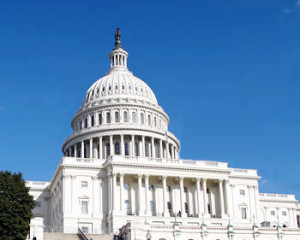Are new taxes fair?
 The presidential election may have decided in favor of Obama, but a creepy reminder of Mitt Romney tax policy keeps creeping into view. With the fiscal cliff just around the corner every American is waiting with bated breath for these tax talks to be resolved.
The presidential election may have decided in favor of Obama, but a creepy reminder of Mitt Romney tax policy keeps creeping into view. With the fiscal cliff just around the corner every American is waiting with bated breath for these tax talks to be resolved.
A new idea from an unlikely source is getting bipartisan attention as a way to broaden the base of taxpayers while limiting loopholes and deductions taken by the wealthy. This proposal that just so happens to be the brainchild of the failed presidential contender Mitt Romney would limit the amount of itemized deductions to a certain monetary limit.
“There’s renewed interest” in the cap on deductions, Senator Kent Conrad, the North Dakota Democrat who heads the Senate Budget Committee said.
This seems like a too good to be true generic way of taxing everyone equally without getting any sore feelings from lobbyists or or powerful interests. Since it seems as if no one can pin down the actual specifics of any plan a politician puts forward until the thing is passed and already effecting our lives. Tax experts disagree that this methodology would serve as a quick fix for our broken tax system claiming that it would disproportionately effect different tax bases.
But this solution doesn’t tackle the larger tax preferences, which make up a large part of the Buffet rule, saying that no wealthy person should be paying less in taxes than their secretary.
These experts have their suspicions that this tax proposal may be a wolf in sheep’s clothing that disproportionately increases the tax burden on the poor and middle class while do nothing to curb the favorable tax environment for the wealthy. This would also effect the entire donor model which so many nonprofits, schools, and museums require to survive.
Martin Feldstein, a Harvard economist and the chairman of the Council of Economic Advisers under President Reagan, thinks that this methodology is a great way to lower the deficit. His proposal calls for capping deductions at 2 percent of income for all individuals.
But this cap on deductions would hit the lower socioeconomic classes where they need it the most… in the charitable sector. That is because this deduction is largely discretionary and at the will of the taxpayer to how much he or she would deduct from their tax bill.
Will this cap on deduction send the charitable sector or our economy into dire straights or is capping deductions that silver bullet needed put the breaks on the economy that is heading towards a fiscal cliff.
Categories: Federal Tax, Income Tax, Tax Law Tags: buffet rule, charitable deduction, corporate tax, federal income tax, federal tax, mitt romney, tax deduction, tax increase, tax reform
Charities Lobby Congress
 With the fiscal cliff looming and cuts on their way nonprofit organizations are descending upon capital hill to defend the charitable deduction tax credit.
With the fiscal cliff looming and cuts on their way nonprofit organizations are descending upon capital hill to defend the charitable deduction tax credit.
Countless charities fear that the charitable deduction may be at risk and argue that cutting this tax credit to their groups they may be harming those that need the services these charities provide the most. By cutting these deductions charitable contributions may dry up effecting those most in need.
“Over the last three years, I’ve never been more worried than I am now, partly because Congress is under enormous pressure to find new sources of revenue,” said senior vice president of United Way, Steve Taylor.
President Obama, who once proposed this sort of deduction, came to their aid arguing that if these deductions were struck from the code or reduced that “every hospital and nonprofit agency across the country would find themselves on the verge of collapse.”
The president is proposing raising taxes on those individuals making $250,000 or more with a lot of pushback from Republicans. Republicans want to eliminate tax breaks and loopholes and keep the tax breaks on the wealthy citing their plan will save $800 billion dollars in tax revenue over the life of the plan.
The GOP remains vague on which deductions they will limit but Obama thinks the charitable deduction may be on the chopping block in their plan.
“There’s been a lot of talk that we can raise $800 billion or $1 trillion in revenues just by cutting loopholes,” Obama said. “But … the only way to do that would be if you completely eliminated, for example, charitable deductions.”
With the fiscal cliff looming both parties seem awash with ideas to curb our deficit and raise revenues.
Nonprofits argue that reduction of this deduction would be “catostrophic” and result in a “real fundamental change in our culture”. Charities receive about $300 billion a year through the act of giving. The deduction tax credit was meant to stimulate charitable contributions and from the looks of that number it looks like it is working.
A CBO report estimated that by eliminating the charitable contribution deduction the government would raise about $230 billion dollars over the next 4 years if giving levels were to remain constant.
The great recession led to dips in the amount of giving declining 7 percent in the last few years for wealthier households.
President Obama proposed capping itemized deductions to 28% of an individuals income down from the 35% it is now. This would obviously hit other deductions as well but charities are real nervous that this reduction will lead to hard times. .
Categories: Tax Law Tags: 501 c 3, charitable deduction, federal income tax, federal tax, income tax, nonprofit tax, tax code, tax reform

